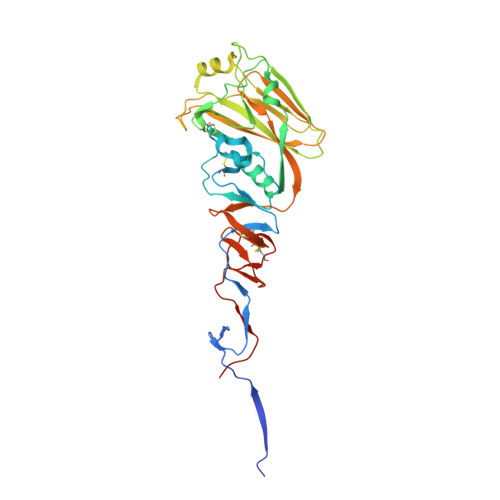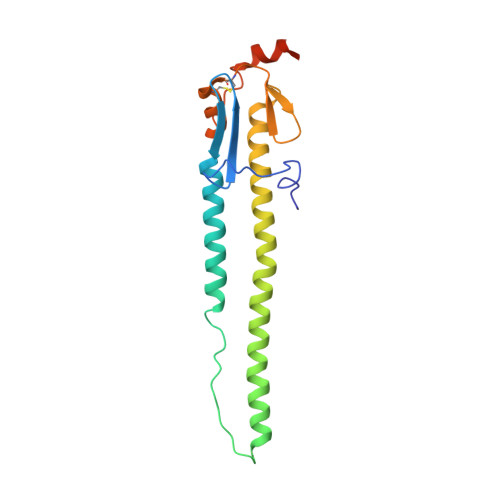Acid stability of the hemagglutinin protein regulates H5N1 influenza virus pathogenicity.
DuBois, R.M., Zaraket, H., Reddivari, M., Heath, R.J., White, S.W., Russell, C.J.(2011) PLoS Pathog 7: e1002398-e1002398
- PubMed: 22144894
- DOI: https://doi.org/10.1371/journal.ppat.1002398
- Primary Citation of Related Structures:
3S11, 3S12, 3S13 - PubMed Abstract:
Highly pathogenic avian influenza viruses of the H5N1 subtype continue to threaten agriculture and human health. Here, we use biochemistry and x-ray crystallography to reveal how amino-acid variations in the hemagglutinin (HA) protein contribute to the pathogenicity of H5N1 influenza virus in chickens. HA proteins from highly pathogenic (HP) A/chicken/Hong Kong/YU562/2001 and moderately pathogenic (MP) A/goose/Hong Kong/437-10/1999 isolates of H5N1 were found to be expressed and cleaved in similar amounts, and both proteins had similar receptor-binding properties. However, amino-acid variations at positions 104 and 115 in the vestigial esterase sub-domain of the HA1 receptor-binding domain (RBD) were found to modulate the pH of HA activation such that the HP and MP HA proteins are activated for membrane fusion at pH 5.7 and 5.3, respectively. In general, an increase in H5N1 pathogenicity in chickens was found to correlate with an increase in the pH of HA activation for mutant and chimeric HA proteins in the observed range of pH 5.2 to 6.0. We determined a crystal structure of the MP HA protein at 2.50 Å resolution and two structures of HP HA at 2.95 and 3.10 Å resolution. Residues 104 and 115 that modulate the acid stability of the HA protein are situated at the N- and C-termini of the 110-helix in the vestigial esterase sub-domain, which interacts with the B loop of the HA2 stalk domain. Interactions between the 110-helix and the stalk domain appear to be important in regulating HA protein acid stability, which in turn modulates influenza virus replication and pathogenesis. Overall, an optimal activation pH of the HA protein is found to be necessary for high pathogenicity by H5N1 influenza virus in avian species.
Organizational Affiliation:
Department of Structural Biology, St. Jude Children's Research Hospital, Memphis, Tennessee United States of America.




















